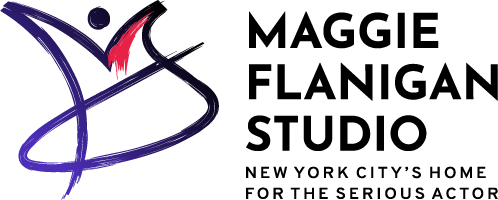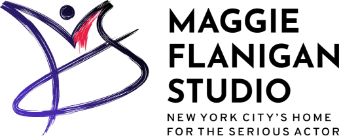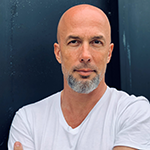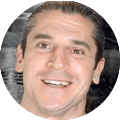APPLY FOR ADMISSION
FIRST YEAR MEISNER ACTING PROGRAM

Begins January 7th, 2025

Call To Schedule an Interview
(917) 794-3878
Brutally Honest Superpowers
The Meisner technique programs at Maggie Flanigan Studio train professional actors for long-acting careers. In this interview, Ralph Anthony discusses how this work has changed his life as a comedian.
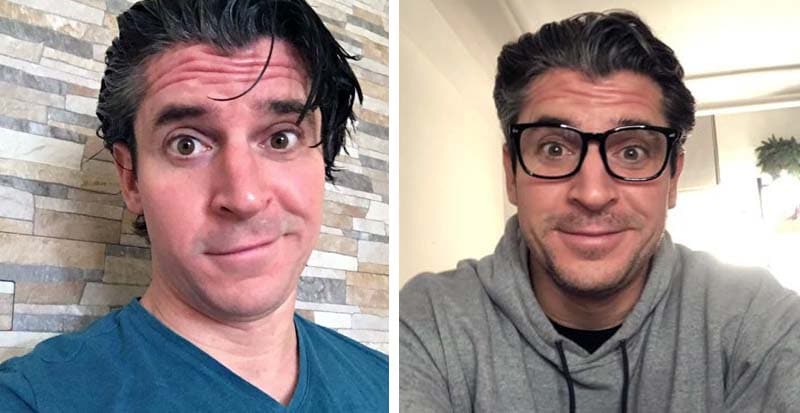
18-month Acting Program Ralph Anthony – Maggie Flanigan Studio – Call (917) 794-3878
-
- What do you think it means to train as an actor now?
- What about the Meisner Technique resonates with you the most?
- How has vulnerability made you a better actor, person, and comedian?
- Do you think the reason why you’ve been able to become vulnerable is because of the program?
- Has being able to access that vulnerability changed your work as a comedian?
- Sometimes people think this work is just for actors. Would you agree?
- How are your auditions different since you first started the program?
- What do you think you’re looking forward to most about auditioning?
- Do you have any advice for students who have never done any of this work?
- Is there anything I didn’t ask that you’re dying to share with us?
- Apply today for admission to the studio
18-Month Acting Program Interview: Ralph Anthony
Katie: Okay. Hi Ralph. Thanks for being here today and doing this again via Zoom.
Ralph: I feel privileged and honored. The third time’s the charm. This is fantastic. I feel like the real MVP right now.
Q: One in person, two on Zoom. We’re getting there.
A: Two out of three ain’t bad. Right?
Q: I know the Summer Intensive was your first time working with the Meisner Technique. What did you think it meant to train as an actor then, and what do you think it means to train as an actor now?
A: What it means to train as an actor before?
It’s a tricky question because I had no basis for comparison. I would just watch TV and movies, and you’re going off that. It’s hilarious; acting is similar to standup where you see it on TV, and you’re like, “Yes, I could probably do that,” and that’s why, I guess, there are so many bad actors out there.
Q: And bad comedians.
A: Oh my God, so many. I had no basis for comparing it. I’ve progressed through the Summer Intensive the first year and now wrapping up the second year. I guess what it means to be an actor is to do something truthfully and to be very personal and very specific about what you’re trying to achieve in the scene; at the moment, overall, what are you bringing to the table?
It’s mighty to be a good actor. It’s something compelling. You want PE– You want to create a reaction in somebody. I think that this studio and Charlie have been able to instill in me is creating emotion in someone else that’s watching and able to bond connect with you. That’s what it means to me.
Q: What about the Meisner Technique resonates with you the most?
A: Sure. I would say the Meisner technique, for me, is just; it’s brutal honesty. It is brutal honesty because there’s no chance to get in your head; you’re always on your impulses. So if you do your homework and if you know your lines and you’re able to come to whatever it is, a table read, you’re on your feet are ready, whatever the case may be, you’re able to work on your impulses, and it creates a sense of freedom.
I think that I did not realize that I was struggling with being creatively free. Because of this work, I’ve tapped into this level of vulnerability that I just did not know I had, or maybe I had it, but I was too afraid to approach it. This wall back here is all just jokes and ideas and premises of things that I want to do on stage. This program, the Meisner technique, got me out of my head and in my heart, and I’m going with what feels right.
What’s the root of the technique? Is to be able to do truthfully in imaginary circumstances. I want to be as truthful and honest as I can because that’s what people want now. People wish authenticity, whether they know you or not, and everyone has a story to tell; everybody’s interesting, nobody’s alike. No two people are alike, so when I’m on stage telling jokes, or I’m on Zoom telling jokes now, I have this like– I feel like I have this superpower where I can be so open and just brutally honest with what I’m feeling or what I’m trying to talk about. That it’s just unparalleled to what I was doing before I walked into Maggie Flanigan in spring of 2019,
Q: You talk about vulnerability. How has accessing that vulnerability made you a better actor, person, and comedian?
A: That is such a great question. It is such a phenomenal question. What does it mean to be vulnerable? What does it mean to be vulnerable as a man? Vulnerability, people are always looking at it as, like you said, as a weakness. Still, I think being vulnerable is probably one of the greatest strengths that someone can have, especially a guy, because where we’ve been living in this world in this society where it’s like men have to puff up their chest, they have to be tough, they have to fight, they can’t show emotion, they can’t cry. If you cry, it’s a sign of weakness.
It’s like, do how strong you have to be to allow yourself to have those emotions, just to give in as Charlie say, hit the bed? I love that this course has allowed me to become more vulnerable. The idea of toxic masculinity is everywhere. We can literally open up Google now and go into any one of the newsletter outlets, and there’s going to be something going on that surrounds a guy, surrounds a man that is afraid of his emotions, and so he lashes out.
It’s the only time we ever talked about men and mental health because that’s where vulnerability comes in. It comes more or less as part of your emotional intelligence, but it also comes in through your mental capacity in how I think almost how intelligent you are. Because if you are that train of thought that you cannot let yourself be open and honest, genuinely open and honest, then there’s something off with you, and I’d have to raise an eyebrow.
I was a college athlete, grew up in a divorced household, and was a bouncer in college. I fought a lot in my 20s. I had to. I went to school– when I got my act together, I went back to school, and I went for piano. I wanted to go for music, but I couldn’t continue playing because my fingers and knuckles, because of all my fighting, could not hold the keys in specific movements that I needed to.
Looking back, if I could talk to someone about my emotions, I think that would have averted a lot of my pain and a lot of my frustration. It’s a shame that we don’t allow men to have this. I love crying. I love crying; it’s one of my favorite things to do. I know that sounds very strange to say it’s one of your favorite things to do, especially those who are listening, who are just tuning in right now like a very awkward time to tune in like, “Hi, welcome to my Ted Talk.”
Q: I love crying too. It’s okay, I know.
A: It’s such a release. I cry alone. I’ve cry during meditation, therapy. I’ve cried more times than I can imagine during this class; I’ve cried in front of my girlfriend during this work. I’ve cried on the train. That is a New York City moment. It’s a rite of passage, but it’s a rite, of course, just for women. That’s what they say; when a woman is a real New Yorker, they say that’s when she cries on the train. When you see a grown man my size, I’m 6’2, 215 pounds for everyone who’s listening. You see a grown man crying in the corner of a train car; no one wants to comfort you. Everybody wants to stare, maybe pull out their phone, see what’s going to happen. Is this guy going to flip out? Because that’s how we’ve been trained to think about men with their emotions. It’s unfortunate. Sorry.
Q: Do you think ultimately, the reason why you’ve been able to get in touch with that is because of the work that you’ve been doing in the program?
A: Yes, I would base the fact. This studio and this work have been probably the sole reason why I’ve been able to access my emotions. Yes, I’m in therapy. Yes, I started journaling a year ago, but it’s this work. It’s Charlie; it is Karen, it’s Maggie. Everybody that comes together makes Maggie Flanigan Studio what it is. When I was going through the Summer Intensive, I had never had any experience with acting before, so finding those emotions was complicated. Letting this armor plate that I had on my chest, letting that go, is probably one of the hardest things I’ve ever done in my life. Karen had told me to read Brene Brown’s Daring Greatly.
I’ve read that book, and when I finished, I cried on the train for the first time. I would love to read on the train, and I base a lot of this work. A lot of this, a lot of what I’m able to do now, comes from having to be vulnerable in class, and it’s a gift. I’ve had some class with Karen, but Charlie is a wizard; when it comes to just finding what it is that you need to extrapolate, you just [whistles] with precision and just [whistles] pull it right out. That vulnerability factor was something that I needed help with, and now I can– I feel like now I can take on anything.
Q: Has being able to access that vulnerability changed your work as a comedian?
A: This work has changed my life as a comedian and how I approach all my standup now. Before I started taking this course, I was mostly an observational comic, I would have people watch a lot of things, and I would just write about what I was seeing. I wasn’t necessarily writing about what I was feeling or what I was going through, and now I am more a storyteller, that I’ll mix in my observations with a lot of things that I talk about. Now I’m talking about approaching parenthood, becoming a stepfather. I talk about how I felt like I was bullied by my parents when I was a kid. I talk about my parents’ divorce.
There are all these things; I talk about my girlfriend and the relationship and being brutally honest about how I was a good person who made terrible decisions in my past, and this work allowed me to unlock that. I can relate it to– vulnerability is like a door you walk through. You walk through this door and into a room. When you walk into this room, you’re surrounded by TV screens, and on every screen is a moment of your life. It’s a memory. It’s a memory that you remember or repressed memory.
Once you unlock that vulnerability, once you open that door and you walk into this room, it’s like you have a whole another life that you didn’t even know that you had. So that’s literally what I’ve been doing because of this class with my standup.
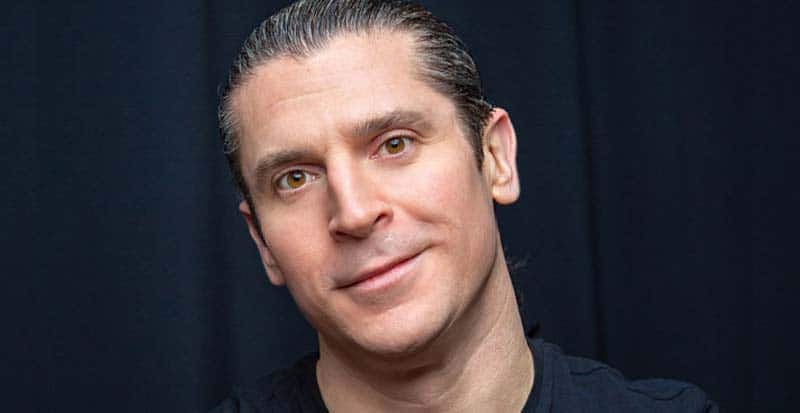
18 Month Acting Program Interview with Ralph Anthony – Maggie Flanigan Studio – Call (917) 794-3878
Q: Sometimes people think this work is explicitly just for actors. Would you agree?
A: If you are passionate about anything in life, you should take this course because it will bring you to another depth of what you can do. Whether you realize it or not, you will be able to dig deeper than you’ve ever dug before. You went through the program as well. It’s like once you get to the spoon reverse, you’re like, “Oh, this is a whole new ballgame,” and hearing this phrase, what does that mean, will haunt you forever.
Q: What does that mean to you?
A: I wanted to finish this work in– what happened last year with COVID just rocked everyone’s world. Everyone, everyone was affected. I’ve never quit anything in my life, and I wasn’t about to start now. My experience with COVID in this work is complete– it is very different from, I think, a lot of people in my class because I’ve been alone for over a year. I live alone, so much of my contact has been through Zoom.
A lot of the time, the only human contact I had was the people that would work at the grocery store, the fruit stand, and my coffee guy. That was it for months. Those are the only people I would talk to in person, obviously, through a mask and social distance. So I dug deep into this work and then to Maggie Flanigan because it was the only sense of community I had.
A lot of New York City standup comics weren’t into Zoom. Some of them didn’t care about COVID, and they were still doing outdoor shows, park shows, indoor displays; they didn’t care. I have two immunodeficient parents, and my girlfriend’s mom is also immunodeficient. So I could not take the chance of getting back out into the world, no matter how much I wanted to or how bad I needed that human contact; it was terrifying for me. So when Charlie brought the studio online, we all bonded together, and it says a lot about your character. If I can reference anything, Angela Duckworth has this book called Grit.
Q: Yes, I love that book.
A: Oh my God, it’s a game-changer, and one of the biggest things to– the way you can tell somebody who’s gritty or not, is the fact do they keep showing up? That’s what a handful of us did of these first-year students. Now even kids in the second-year program came on at the end. They didn’t finish the first year. They did not spend with the web. They came on for a second year. They couldn’t finish it out, and I would never say this affected everybody in different ways, but I respect people.
I respect my classmates that kept showing up because it was hard. No one knew what was going on, mainly if you lived in New York. That’s the thing. I live in Queens. I live in Astoria. I was four blocks away from two tractor-trailers they were using as morgues. I would see them three times a week. I would hear helicopters going between the Manhattan and Elmer Hospital, basically ground zero for COVID in New York. It was a terrifying time, and I latched onto this course with everything I had. I latched onto my classmates and Charlie. I knew it gave me some semblance of what the real world was like, what the old world was like, because it’ll never be the same. There’s not going to be a new normal, just going to be unique than where it will never go back to normal. So it’s just a new form of routine.
Would I love to continue working in person? Of course. Of course, this work is challenging, and you need that human contact, but you know what? The world has changed. If we didn’t go long online and still were in person, we’re going to be at a disadvantage when we go back out and start working. So, I’m doing auditions on Zoom. I’m doing auditions, self-tape. You see more self-tapes. So, working on this three-by-five screen is how we’ll get work going forward.
Studios will probably see how much money they’re saving on not renting space out to hold auditions. Getting back to the question, sometimes I feel like I can go off on a tangent, so I apologize. It was tough to do this second-year work online; I’m not lying. I think Charlie would be upset if I sugar-coated it, and it wasn’t honest. That’s what I said before, brutal honesty.
Q: Well, difficult is different from impossible, and I think that’s an important thing we’ve been sharing with people.
A: Yes, and one caveat or one thing that you want to add is that you have Charlie. Charlie will teach you anywhere, and I feel like I’ve said this in an interview that I’ve done. When you have Charlie, it’s like having the Michael Jordan of acting teachers; he’s the best. He is the absolute best, and he will teach you whether you’re on a screen, whether you’re on the phone, he will do it wherever he possibly can, and whether you’re on Zoom or in person, you don’t lose that. You don’t lose that fire that he has; you don’t lose that intensity, the caring that he brings to mold us into good actors.

18-month Acting Program with Charlie Sandlan – Maggie Flanigan Studio Call (917) 794-3878
Q: How are your auditions different from those you were doing when you first started the program?
A: I feel like I’m showing up to auditions now after coming to the end of the second year of work; I’m coming with more feeling, with more emotion. When I would get auditions before, you get a script; you read the script, you learn the lines by row, that’s it. That’s how you memorize it; boom, you’re ready to roll. Sometimes you have to do that. Sometimes it’s too quick of a turnaround, but now with this second-year work, you can nursery rhyme these lines out, nursery rhyme these scenes out, and it helps bring depth to this work to the stage.
Charlie always uses an example of; if 100 people are auditioning for this role, you’re going to get 95 of them that will do it the same way, be one of the five that does it differently, and create your previous circumstance. If they don’t give you one– More times than not, you’re not getting a last circumstance with the script. You’re just getting a cut from the scene where it’s like, I don’t know, two or three pages, and you got to make it up like I just had to do this last week where I had to create my previous circumstance, and then I nurse rhymed out the rest of the scene. It was fantastic.
I didn’t get the part, but I felt like I was actually doing this correctly and not just rattling something off for the first time. I don’t want to be one of the 95; I want to be one of the 5. I want to do this and do this properly.
Q: What do you think you’re looking forward to most about really getting out there auditioning?
A: There’s a lot of things I’m looking forward to getting out there and seeing post-COVID. One can hang out at a comedy club just to see my friends. I haven’t seen my friends really in a year. In terms of the work, I’m looking forward to getting out there and making a casting director say, “Wow, that’s awesome.” I remember one of these auditions where we were in a warehouse; it was myself and, oh my God, it felt like there were probably at least another 75 actors in this little warehouse down on the lower Eastside.
I was auditioning for a role of a flamboyant fashion designer for this Netflix series. I remember talking to Charlie because I’d never played somebody that’s flamboyant before. He had said, “Just go with your gut, go over the top, if you can, just be different than everyone else,” and I did it. I had all three casting directors laughing in their seats. Finally, one of them said, “Wow, this is amazing,” and then COVID hit. So, that’s what I’m looking forward to.
I’m looking forward to getting back out there and showing somebody that the light that’s inside. The spark that we all have, there’s just, you don’t get a lot of chances to do that and so when you get the opportunity to sit three casting directors, you just, I don’t know, you know what? None of that makes sense. So I just want to show somebody what I can do, that’s it. I just want to be able to– What I would like the most significant thing, and when it’s all said and done, it’s something I’ve been thinking about, and I’m sorry for meandering through all of this.
The one thing that I’m looking forward to doing once I get out of this studio is implanting in somebody’s mind that they want to take a chance on me; that’s what I want. I want to show them what I’ve got and have their say, “You know what? I want to take a chance on you. I want to take a chance.” Because that’s what it’s all about. I just want to show somebody what kind of magic you got.
Q: Do you have any advice for students who have never done any of this work but they’re worried about time, money or their age?
A: Yes, my advice to anybody thinking about doing this work training with Maggie Flanigan Summer Intensive or the two-year program is just do it, just do it. Because you will find a dozen ways, a dozen excuses to tell yourself not to, you’ll find them. If you look hard enough, you will find yourself with any; you’ll be able to talk yourself out to anything so just do it. Who cares?
I started this program when I had just gotten fired from the corporate job that I had known for ten years. I had no prospects; I had no formal acting training. I was on a minimal income and 37 years old. I mean, not to pat myself on the back, but I don’t know if you could stack the chips more against me, impossible. Then having a pandemic hit a year later, but I committed myself. Once I got fired, I said, “Listen, you’ve got three years until you’re 40. Do as much as you can, figure out what you want to do, and then just, I almost cursed, go for it. Just go for it.” I never wanted to live my life saying what if. That’s the scariest thing that I could ever imagine.
No matter where you are in life, I don’t care if you live at home, I don’t care if you have a job you hate, you don’t have any job, this studio will make it possible if you want to work. If you’re committed to yourself, they will be committed to you in more ways than one with the training, financially. They will make it work. If you want to keep showing up, just do it if you’re going to put in the time. I’ve lived in New York my whole life; this is the one place where you can always know that you’re getting the benefit of the doubt.
Q: Is there anything I didn’t ask that you’re dying to share with us?
A: Yes. This is not a manifesto behind me, everyone. It’s not a manifesto. I know what you’re thinking. Basement apartment writing on the wall. Not a manifesto. That’s one thing.
Q: It’s your comedy ideas.
A: These are all jokes baby, it’s all just jokes. It’s all appropriate jokes. These are Spoon Rivers. I’ve written out all my Spoon Rivers now. Seriously, in all honesty, coming from somebody who didn’t get his life together till he was in his 30s, there’s no better time than the present. With every passing moment, you always have a chance to turn it around. That’s what I did. Just go for it. Whether you second guess yourself or not, you don’t need anybody; there’s nobody else looking back at you in the mirror except for yourself. You might as well do whatever you can to make a dream come possible.
Apply Today for Admission to the Studio
Actors committed to developing themselves as professional actors within the highest standards and expectations of actor training should apply online (https://www.maggieflaniganstudio.com/new-york-ny). Questions about enrollment can be answered by calling the studio at (917) 794-3878.
Recent Post
STUDENT TESTIMONIALS
“I was placed in the intense reigns of Charlie Sandlan. I became a better artist, actor, friend, sibling and daughter because of the studio. Even now, I crave the studio every day. What I learned is present in my work every day. I truly believe in everything they stand for.”

“Maggie taught me that I could control my work, my acting, and to throw all of the bullshit out that I had in my head about ‘what I should be doing’ and to just listen and respond honestly, in the moment. She gave me a craft. She is, quite simply put, THE BEST.”
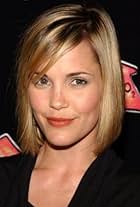
“Maggie Flanigan taught me the true meaning of artistry, passion, and professionalism. I am certain that I continue to work as an actress because of my training with Maggie. At every audition and every performance, her guiding voice is with me. It is a gift beyond measure.”

“Maggie Flanigan is uncompromising, her instincts as a teacher are razor sharp. She doesn’t miss a beat”

“Maggie Flanigan has been one of the most important people in my artistic life. I want to work with Maggie trained actors. As an actor myself, she is my first source. I do not say this lightly, if you are serious about acting, and willing to work very hard, then go to Maggie.”

“Maggie helped me find my sense of truth, an actors greatest asset. Maggie is an expert at instilling that vital ingredient, which allows an actor’s potential to become limitless. My work will forever be rooted in the clarity and honesty she helped me develop.”

“After working for ten years, I did the 2 year program, and now feel that I have the tools I need to become the actor I’ve always dreamed of being. Maggie Flanigan instilled in me a clear sense of truth and a standard of perfection. I am a better actor because of this studio.”

“As an actor, the core of what you have to rely on is your sense of truth and humanity. Maggie allowed me to discover and embrace mine. Trusting my sense of humanity and truth has given me the ability to take risks in my work and my career decisions.”

“Maggie Flanigan has the unique ability to get an actor to the essence of what is true in a moment. She creates a safe and caring environment in which to work.”

“Maggie Flanigan introduced me to my own spirit and my own sense of Truth. Her passion for teaching and ability to communicate are rare gifts to any actor looking for a technique to set his or her talent free. Maggie’s voice has been the one constant guide in my career.”

